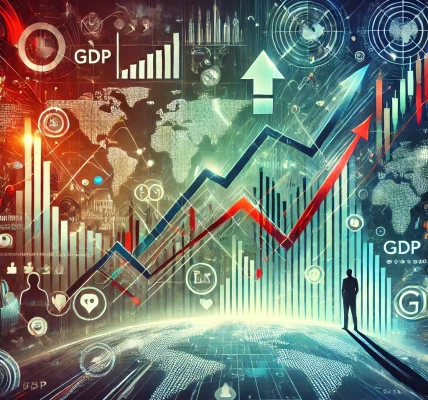In today’s interconnected world, businesses are significantly influenced by political and economic changes across the globe. The rise and fall of markets, trade regulations, geopolitical tensions, and financial policies all contribute to shaping business environments. Understanding these market shifts can help businesses adapt and strategize effectively to remain competitive.
This article explores the major political and economic factors that impact global markets and businesses, offering insights into how companies can navigate uncertainties and capitalize on opportunities.
1. The Role of Political Changes in Global Markets
Political decisions at both national and international levels have a profound impact on business operations. Governments shape economic landscapes through policies, regulations, trade agreements, and diplomatic relations.
Key Political Factors Affecting Businesses:
a) Government Policies and Regulations
Governments implement policies that impact taxation, labor laws, environmental regulations, and corporate governance. Businesses must comply with these regulations to operate legally and avoid penalties.
b) Trade Agreements and Tariffs
International trade agreements, such as the USMCA, European Union trade deals, and post-Brexit agreements, define how goods and services move across borders. Increased tariffs or trade restrictions can affect supply chains and profit margins.
c) Geopolitical Tensions and Conflicts
Conflicts between countries can lead to economic sanctions, import/export restrictions, and disrupted supply chains. Businesses reliant on international markets must develop contingency plans for such scenarios.
d) Political Stability and Elections
Election outcomes can drastically alter business environments by introducing new policies or shifting economic priorities. Political instability often discourages foreign investments and leads to market volatility.
2. Economic Factors Shaping Global Business Environments
Economic conditions play a crucial role in determining consumer spending, investment patterns, and market growth. Businesses must monitor economic indicators to anticipate potential shifts.
Key Economic Factors Affecting Businesses:
a) Inflation and Interest Rates
High inflation reduces consumer purchasing power, while fluctuating interest rates influence borrowing costs for businesses and individuals. Central banks, such as the Federal Reserve and the European Central Bank, adjust rates to stabilize economies.
b) Global Recessions and Economic Downturns
Economic slowdowns reduce consumer spending, impact employment levels, and force businesses to cut costs. Companies need financial resilience and diversification strategies to withstand economic downturns.
c) Currency Exchange Rates
Fluctuating exchange rates impact the cost of international trade, affecting businesses engaged in exports and imports. Currency devaluations can make imports expensive, while strong currencies may impact export competitiveness.
d) Emerging Markets and Growth Opportunities
Developing economies, such as those in Asia and Africa, present new business opportunities due to rising middle-class populations and increasing consumer demand. Companies that invest in these regions strategically can achieve long-term growth.
3. How Businesses Can Adapt to Market Shifts
To thrive in an ever-changing global market, businesses must adopt strategies that enhance adaptability and resilience.
a) Diversification of Markets and Supply Chains
Companies should explore multiple markets to reduce reliance on a single economy. Diversifying suppliers also mitigates risks associated with political instability and trade restrictions.
b) Technological Integration and Digital Transformation
Investing in technology, automation, and digital platforms enhances operational efficiency and allows businesses to adapt to changing consumer preferences.
c) Proactive Risk Management Strategies
Organizations should conduct regular risk assessments and develop contingency plans for potential economic and political disruptions.
d) Policy Advocacy and Industry Collaboration
Engaging with policymakers and industry groups helps businesses influence favorable regulatory changes and stay informed about upcoming policy shifts.
4. Conclusion: Navigating an Evolving Market
Political and economic changes are inevitable, but businesses that stay informed and adaptable can turn challenges into opportunities. By closely monitoring global market shifts, diversifying operations, and implementing strategic risk management, companies can navigate uncertainties and thrive in a dynamic business environment.
Ultimately, success in a shifting global landscape depends on proactive planning, innovation, and a deep understanding of political and economic trends. Businesses that embrace change and invest in resilience will be better positioned for long-term growth.



